
history
the Magnoliastory
-
In the late 17th century, Stephen Fox acquired a 400-acre plantation along the banks of the Ashley River. Fox passed the land to his son-in-law, Thomas Drayton, thus establishing the Drayton family name upon the Ashley’s shores. The Draytons expanded their land holdings over the next two centuries, reaching nearly 1,700 acres by the dawn of the Civil War. This land made up what became known as Magnolia-on-the-Ashley and later Magnolia Plantation & Gardens.
-
Carolina Gold Rice, cultivated by the enslaved, provided the vast wealth enjoyed by the Drayton family. Its name derived from the golden hue of the unhulled grains and for the riches it bestowed upon the planter class of Lowcountry South Carolina. However, those who toiled under the yoke of slavery to those golden grains are not forgotten. Four restored and preserved enslaved cabins are still present on the property. Dedicated conservation work continues to ensure we honor those who labored in the rice fields, house, and gardens at Magnolia Plantation & Gardens.
-
In the 1840s, the Rev. John Grimké Drayton planted the elaborate Picturesque garden to help his new wife, Juliana Ewing, a Philadelphia socialite, adjust to Lowcountry life. The Rev. Drayton hoped the gardens would not only add beauty to their property but would also showcase his amazing collection of azaleas and camellias. In fact, Drayton’s stunning plants—long kept in the greenhouses of New York and Pennsylvania—were among the first of their kind to be planted outside in South Carolina’s subtropical climate. While Drayton possessed the vision, it was the enslaved who carried it out and labored to bring the Picturesque garden dream to life.
-
Following the Civil War, Rev. Drayton found himself in dire need of revenue. Drayton sold a great deal of his holdings for phosphate mining—like many other large landholders across the Lowcountry—but Drayton held another unique card in his hand. In 1871, Magnolia opened its gardens to the public, becoming one of Charleston’s first tourist attractions. During the magnificent blooming of camellias and azaleas, visitors arrived via steamship on the Ashley River and received guided tours from those who had formerly been enslaved. People have been admiring the gardens ever since.
-
Now open year-round, Magnolia’s gardens bloom every day of the year, offering visitors a glimpse into its rich and evolving history. Through dedicated research, we continue to uncover and share the stories of all those who lived and worked here across the centuries. By honoring their voices and experiences, we strive to ensure that their legacy endures for generations to come.
Milestones at Magnolia
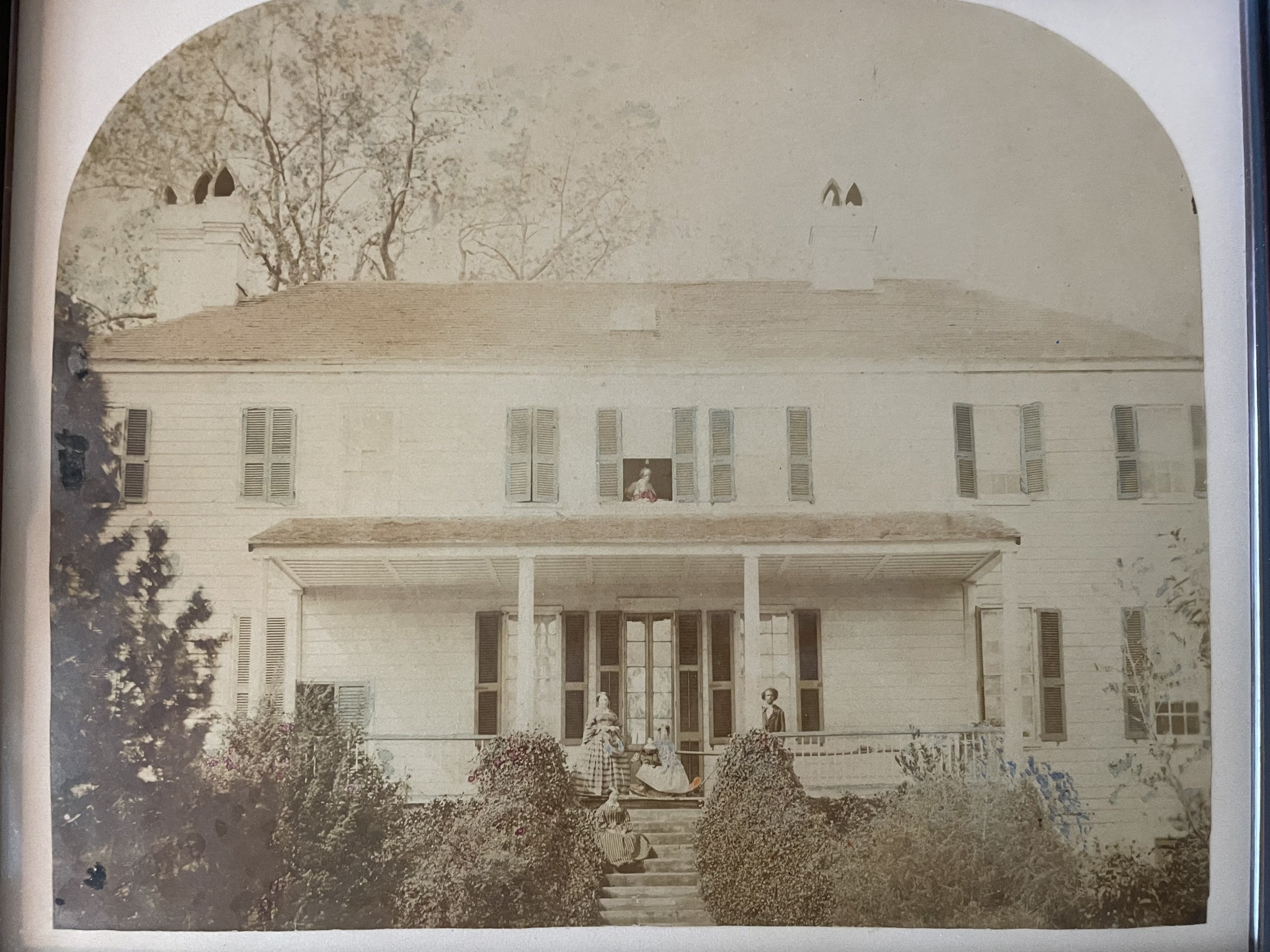
1850 – Mrs. Julia Drayton (standing), Ella Drayton (on rocking horse) and her older sister Julia (on steps) posed outside the second Magnolia house in this hand-tinted image taken in the early 1850s by the Matthew Brady photography studio. An unidentified enslaved man stands to Ella's left.
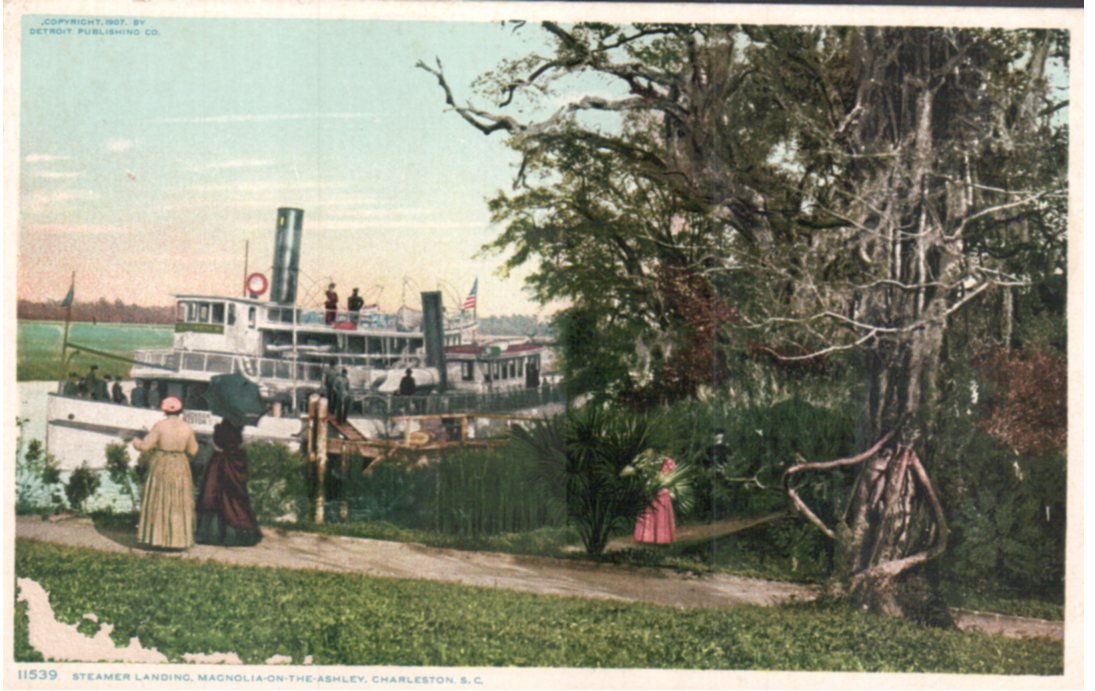
1870 – This postcard from the late 19th century shows the arrival of a steamboat at Magnolia. Visitors to the gardens could come up the Ashley from Charleston by boat until the 1920s. Ashley River Road (Highway 61) was not paved until the 1930s.
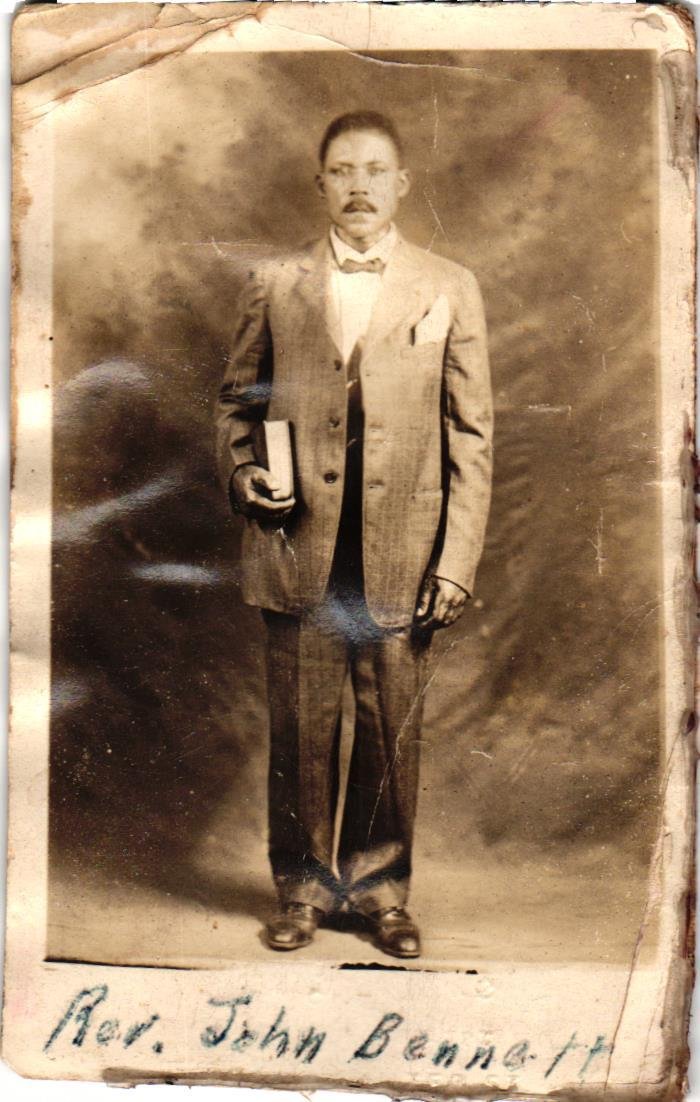
John was born at Magnolia in the late 1870s to Adam Bennett, the first garden superintendent. They shared their duties until Adam died in 1910. John continued his duties until 1926.
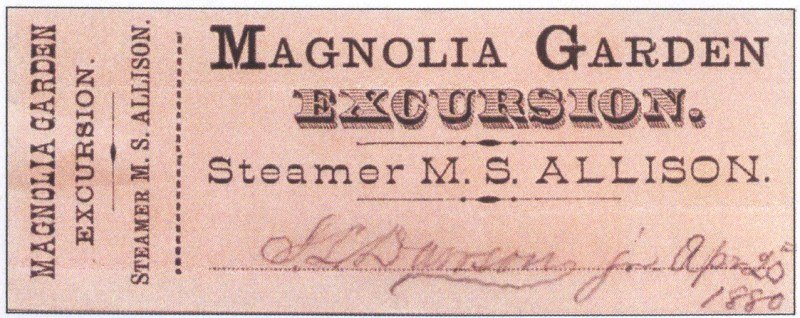
1880 – By 1880, when this ticket was issued, visits to Magnolia Gardens during the spring bloom were commonplace.

1883 – Magnolia's iconic white bridge was built in the 1840s by enslaved workers; this photograph (taken in 1883) was part of a souvenir pamphlet offered for sale. It is one of the earliest photos of the Long Bridge.
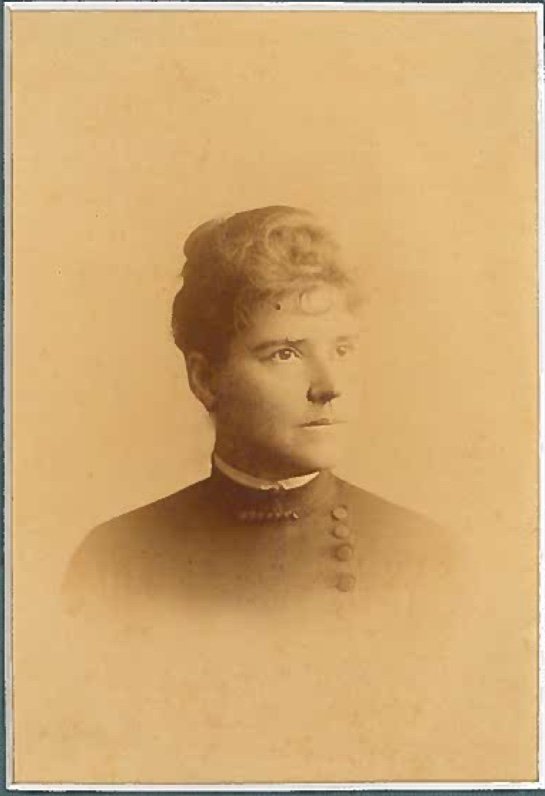
1891 – Julia Drayton Hastie (1848-1920) inherited Magnolia when her father, the Reverend John Grimké Drayton, died in 1891. She was the only sole female owner in Magnolia's history.
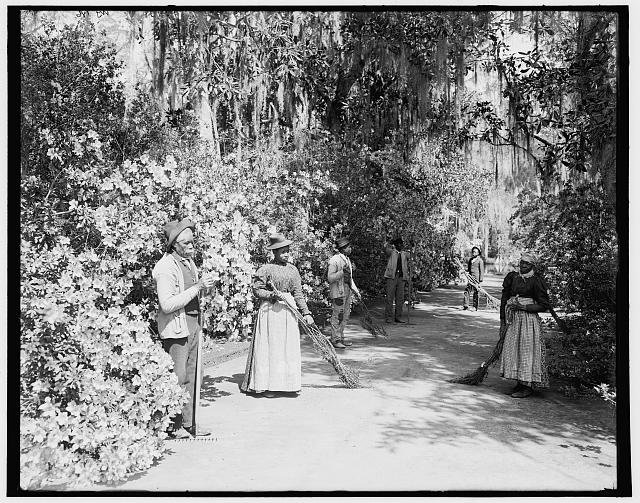
1900 – An image taken in 1900 by William Henry Jackson shows six garden staff members posed on Magnolia Walk. The woman on the right is identified as "Aunt Phoebe"; the older man on the left holding a rake may be Adam Bennett. The identities of the remaining four people are unknown.

1920's – In 1951, C. Norwood Hastie Jr. (left) and his brother J. Drayton Hastie inherited Magnolia jointly from their father, C. N. Hastie. The boys were young teens in this photograph from the late 1920s.

1946-47 – Magnolia Gardens Nursery Catalog
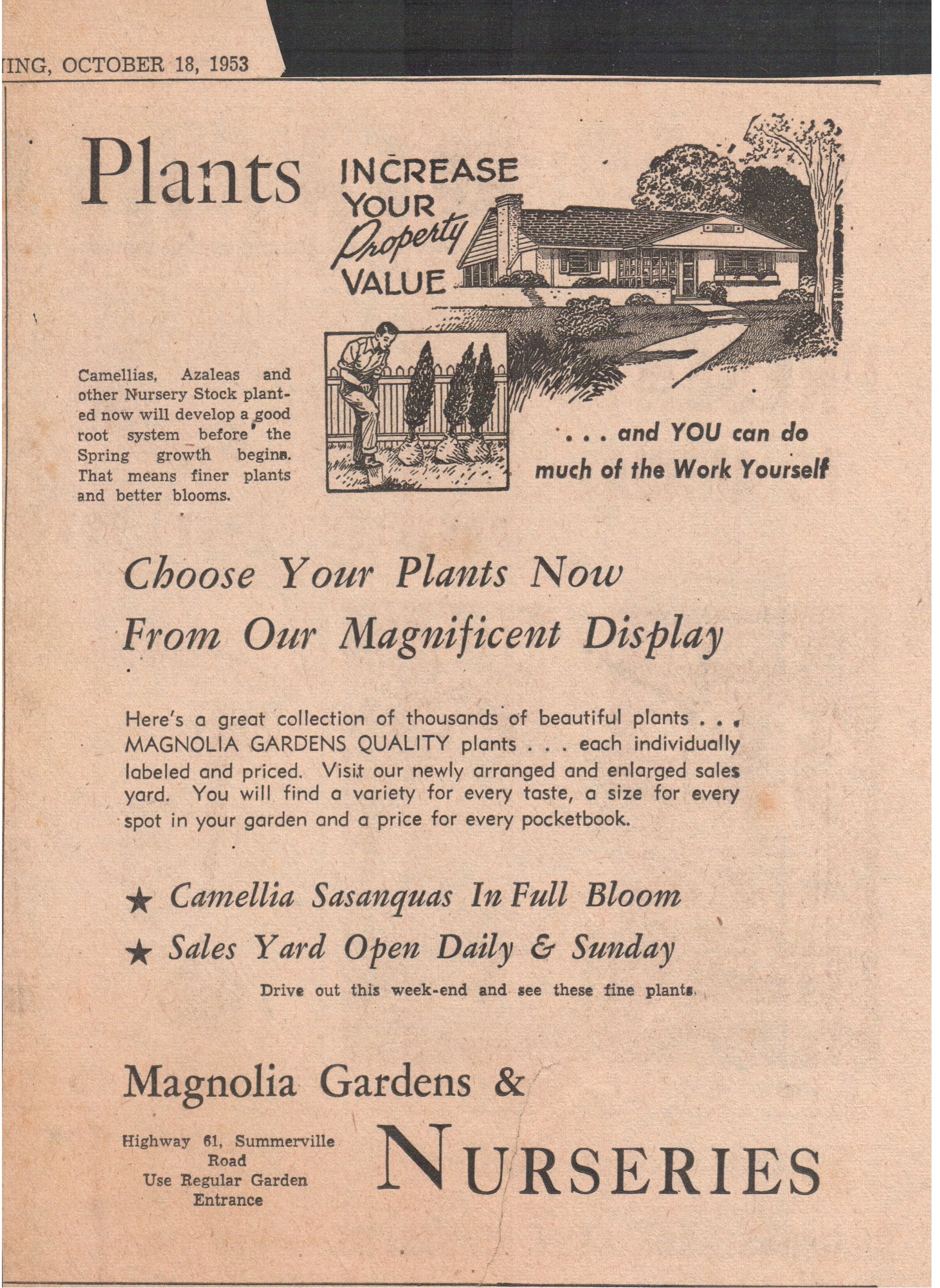
1953—Magnolia's commercial plant nursery was locally renowned in the 20th century for cultivating camellias and azaleas. Revenue from the nursery helped support the gardens that only open for a few weeks in springtime.
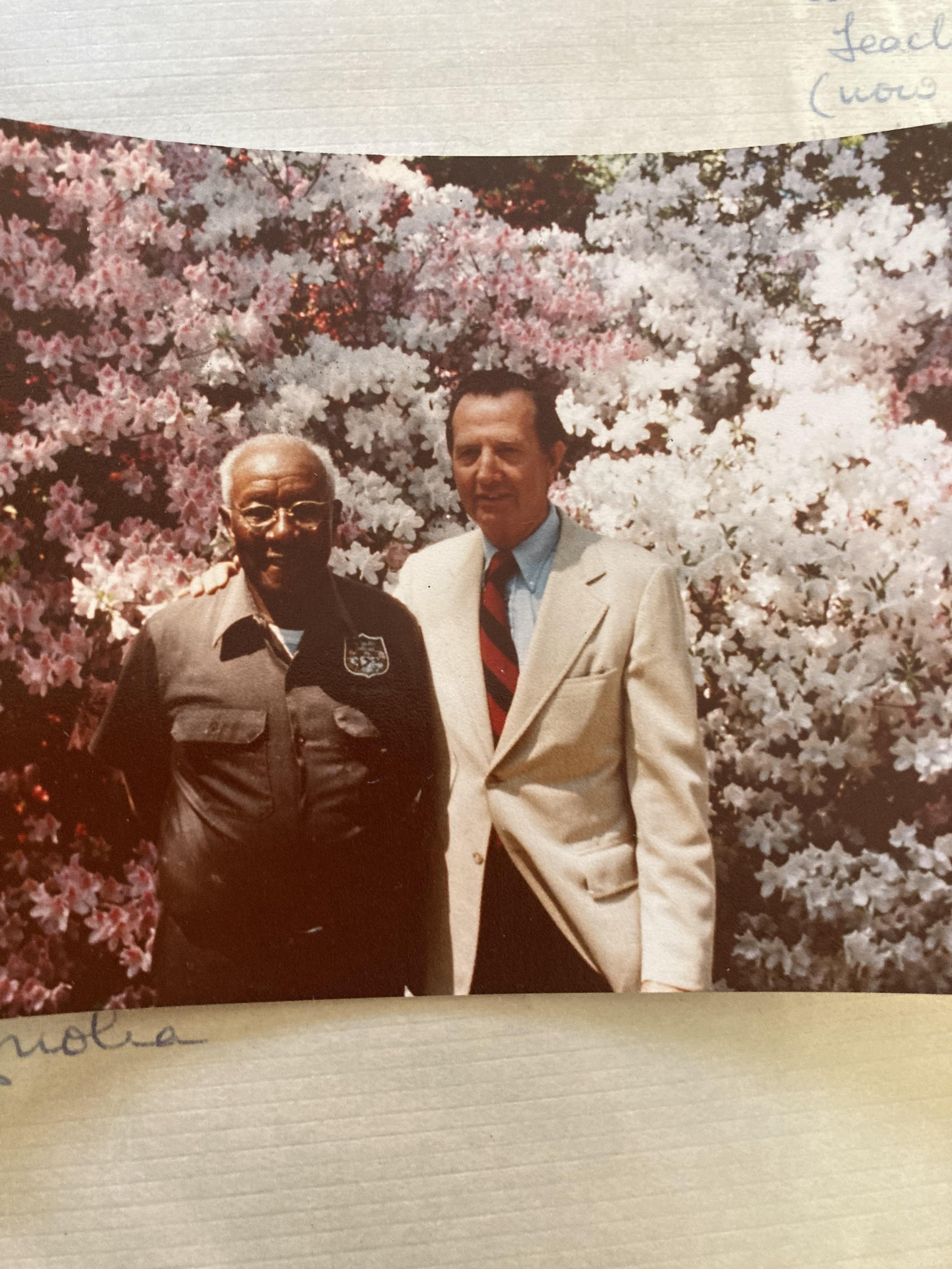
1970—This snapshot, from the early 1980s, shows the Reverend Willie Leach, garden superintendent, next to J. Drayton Hastie, sole owner of Magnolia at the time. Rev. Leach lived and worked at Magnolia for nearly 50 years.
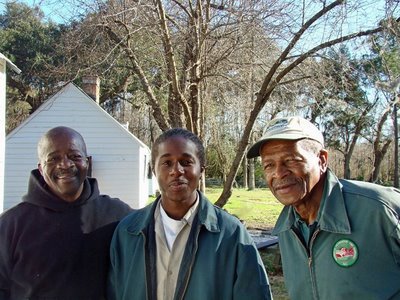
The Leach family has been working on the property since the early 20th century. Members of the family continue to care for the gardens as they have for more than 100 years.






